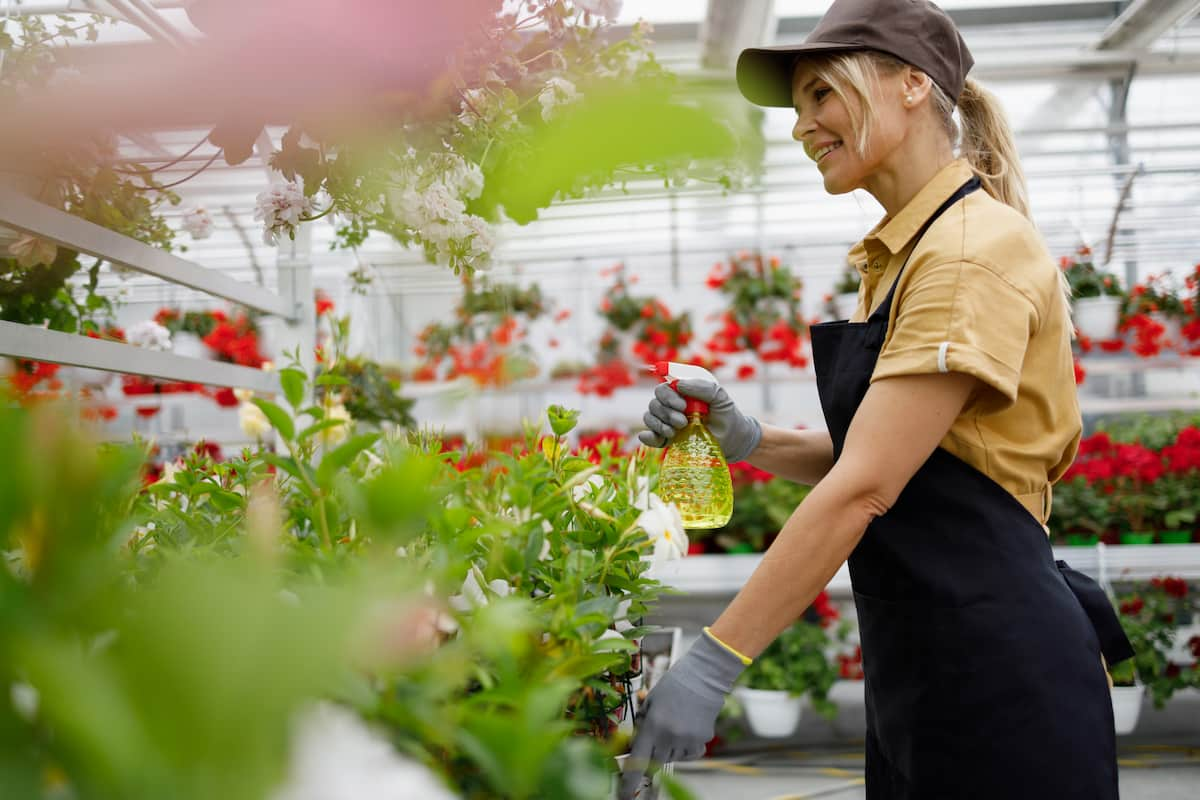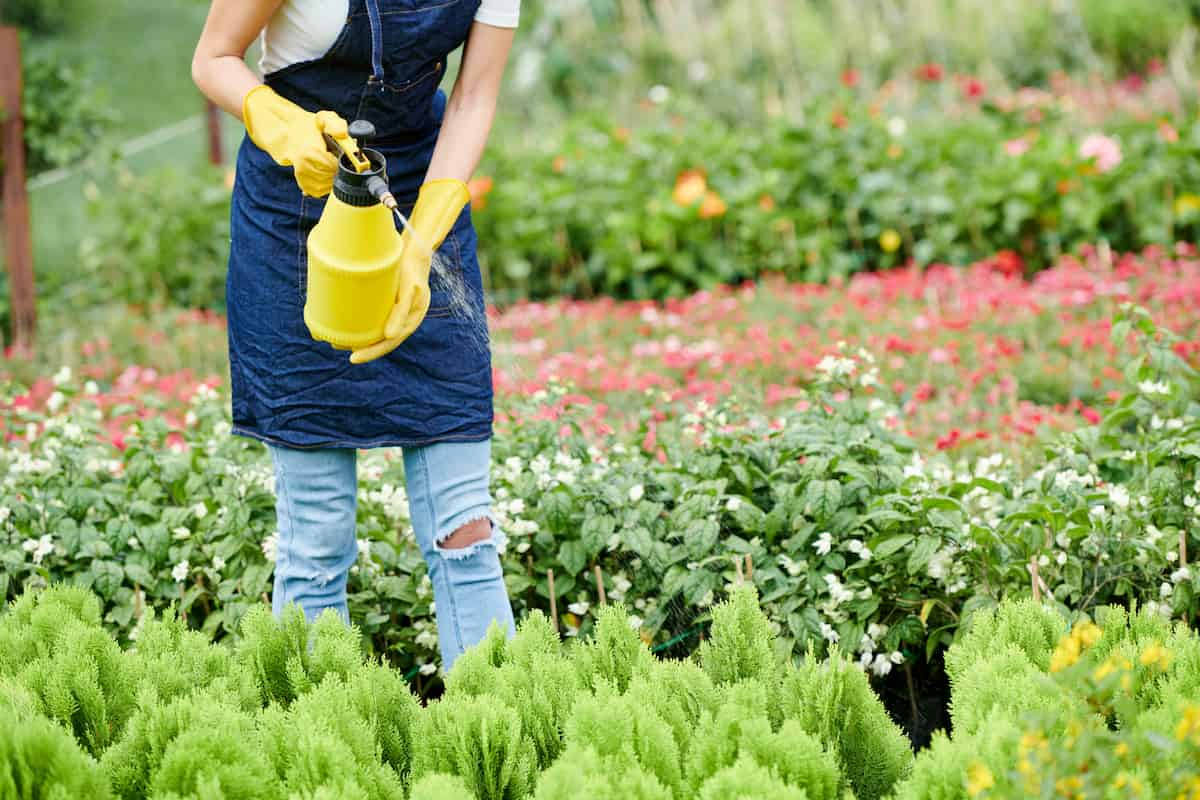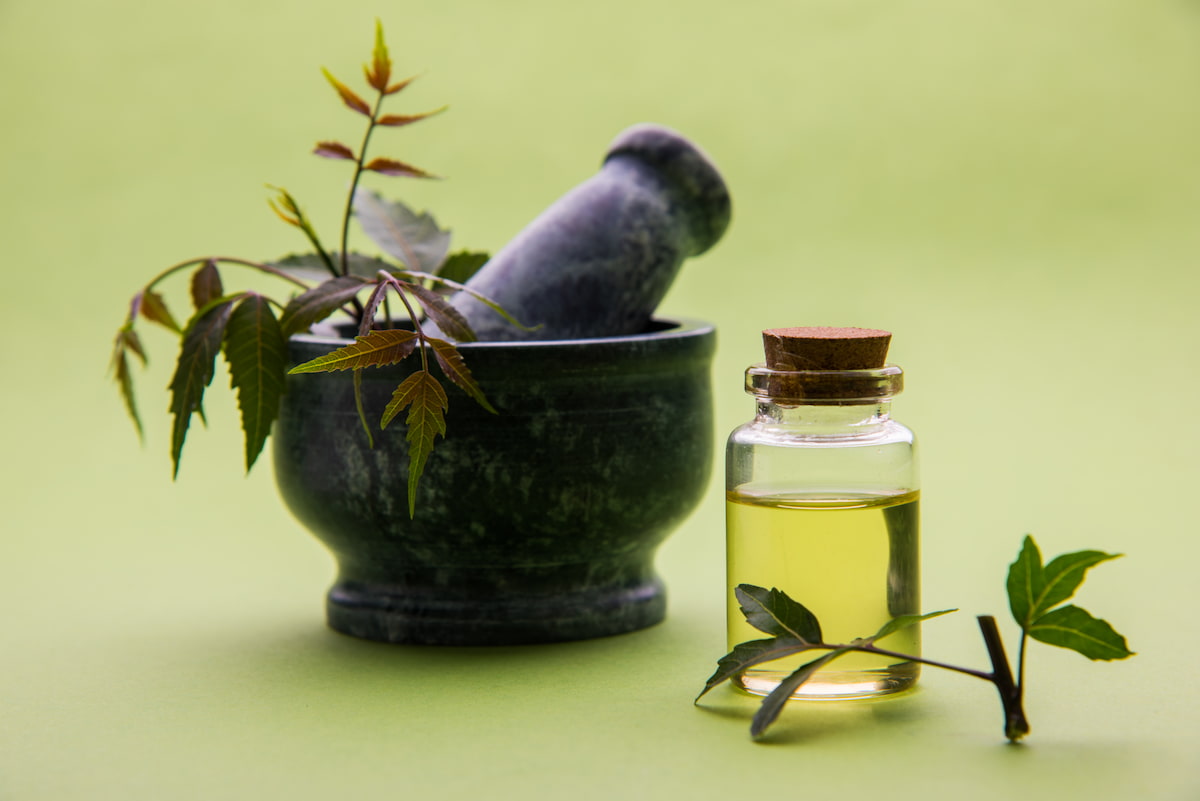Gardening enthusiasts are always seeking sustainable and eco-friendly alternatives to maintain the health of their plants. Neem oil is an organic solution that provides numerous benefits to plants and helps protect the environment. Derived from the seeds of the neem tree, this oil has been used for centuries in traditional agricultural practices. Below we learn how to use neem oil on plants, neem oil pesticides, what plants not to use neem oil on, how to apply neem oil for plants and soil, and the benefits of using neem oil in gardening.

Gardening with Neem Oil
Extraction and Composition
Neem oil is extracted from the seeds of the neem tree, typically through cold-pressing or solvent extraction methods. Cold-pressed neem oil retains more active ingredients, such as azadirachtin, Nimbin, and salannin. These compounds are responsible for the oil’s insecticidal, antifungal, and antibacterial properties. In addition to these bioactive ingredients, neem oil contains fatty acids, which help moisturize and nourish plants.
Benefits of Neem Oil in Gardening
- Pest control: Neem oil is a potent organic pesticide effective against many pests, including aphids, whiteflies, spider mites, and caterpillars. It disrupts the pests’ feeding, growth, and reproduction, leading to their eventual death. Moreover, it is biodegradable and does not leave harmful residues on plants, making it a safe option for organic gardening.
- Disease prevention: Neem oil exhibits antifungal and antibacterial properties, helping to prevent and control plant diseases such as powdery mildew, black spot, and rust. Regular application of neem oil can help keep plants healthy and disease-free.
- Plant growth: Neem oil contains essential nutrients and hormones that promote healthy growth and development. It can enhance the plant’s immune system, allowing them to withstand stress from pests, diseases, and unfavorable weather conditions.
Application of Neem Oil in Gardening
- As a foliar spray: Mix neem oil with water and a few drops of mild liquid soap, which helps the oil to emulsify and spread evenly on the plant’s surface. Apply the mixture to the plants using a spray bottle, covering both the leaves’ tops and undersides. Repeat the application every 7 to 14 days to ensure effective pest and disease control.
- As a soil drench: Neem oil can be applied to the soil to control soil-dwelling pests and pathogens. Mix the oil with water and pour the solution around the base of the plants. This method is particularly useful for combating root-feeding pests and fungal infections that attack the plant’s root system.
- As a preventative measure: Regular application of neem oil can help prevent the onset of pest infestations and diseases. Apply the oil as a foliar spray or soil drench before the growing season and continue its use throughout the season to maintain the plant’s health and vigor.
In case you missed it: Benefits of Neem Cake Fertilizer: How it Differs from Other Composts

Safety Considerations and Environmental Impact
- Human and animal safety: Neem oil is considered safe for humans and pets when used as directed. However, it can cause skin and eye irritation in some individuals. Therefore, wearing protective gloves, eyewear, and clothing is essential while handling and applying neem oil.
- Beneficial insects and pollinators: Neem oil is relatively non-toxic to beneficial insects, such as ladybugs, earthworms, and bees, as it primarily targets pests that feed on plant tissues. However, applying the oil during the early morning or late evening hours when pollinators are less active is essential to minimize any potential impact on their populations.
- Environmental impact: Neem oil is biodegradable, which means it breaks down naturally and does not accumulate in the soil, water, or air. By using neem oil as an organic alternative to synthetic pesticides, gardeners can reduce the harmful effects of chemical runoff on water sources, soil contamination, and wildlife.
Precautions and Limitations
- Temperature sensitivity: Neem oil can solidify at low temperatures, making it difficult to apply evenly. Store the oil warmly and shake the container well before use. Additionally, avoid applying neem oil during hot or cold weather, as it may cause phytotoxicity and damage plants.
- Plant sensitivity: Some plants may be sensitive to neem oil, resulting in leaf burn or other damage. It is crucial to test the oil on a small portion of the plant and monitor its reaction for 24 hours before applying it to the entire plant. Avoid using neem oil on plants like Japanese maples, hibiscus, and some succulents, as they may be sensitive to the oil and could suffer damage or stress.
- Shelf life and storage: Neem oil has a limited shelf life and can degrade over time, losing its effectiveness. For best effects, keep the oil cold and dark and use it within six months.
Additional Steps for Optimizing Neem Oil Use in Gardening
- Rotate with other organic pest control methods: To minimize the chances of pests developing resistance to neem oil, it is advisable to rotate its use with other organic pest control methods, such as introducing beneficial insects, using insecticidal soaps, and employing physical barriers like floating row covers.
- Utilize companion planting: Incorporate plants that naturally deter pests or attract beneficial insects into your garden. This strategy, known as companion planting, can work synergistically with neem oil applications to enhance overall pest control and promote a healthy garden ecosystem.
- Monitor pest populations: Regularly inspect your plants for signs of pest infestations and diseases. Early detection and intervention can help prevent the spread of pests and diseases, reducing the need for frequent neem oil applications.
- Prune and remove infected plant material: Prune away any infected or damaged plant parts and promptly dispose of them to reduce the risk of pests and diseases spreading to healthy plants. Maintaining good garden hygiene can create an environment less conducive to pest infestations and disease outbreaks.
In case you missed it: Neem Rich Vermicompost for Garden Plants: Unlock and Boost the Power of Neem

Conclusion
Neem oil is a versatile and effective organic solution for maintaining plant health and controlling pests and diseases in an environmentally friendly manner. Adding neem oil to your gardening routine allows you to enjoy the benefits of a thriving, chemical-free garden while contributing to a greener, healthier environment. However, following the recommended guidelines for application and safety is essential to ensure the best results for your plants and the environment.
- Feed Your Flock for Less: Top 10 Tips to Save on Chicken Feed
- Ultimate Guide to Ossabaw Island Hog: Breeding, Raising, Diet, and Care
- Hatching Answers: The Top 10 Reasons Your Chickens Aren’t Laying Eggs
- Eggs and Economics: Breaking Down the Cost of Raising Backyard Chickens
- Defend Your Greens: Proven Methods to Keep Iguanas Out of Your Garden
- Ultimate Guide to Cinnamon Queen Chicken: A Comprehensive Guide for Beginners
- Ultimate Guide to California Tan Chicken: Breeding, Raising, Diet, Egg-Production and Care
- Ultimate Guide to Marsh Daisy Chicken: Breeding, Raising, Diet, and Care
- 10 Types of Chicken Farming Businesses You Can Start for Profits